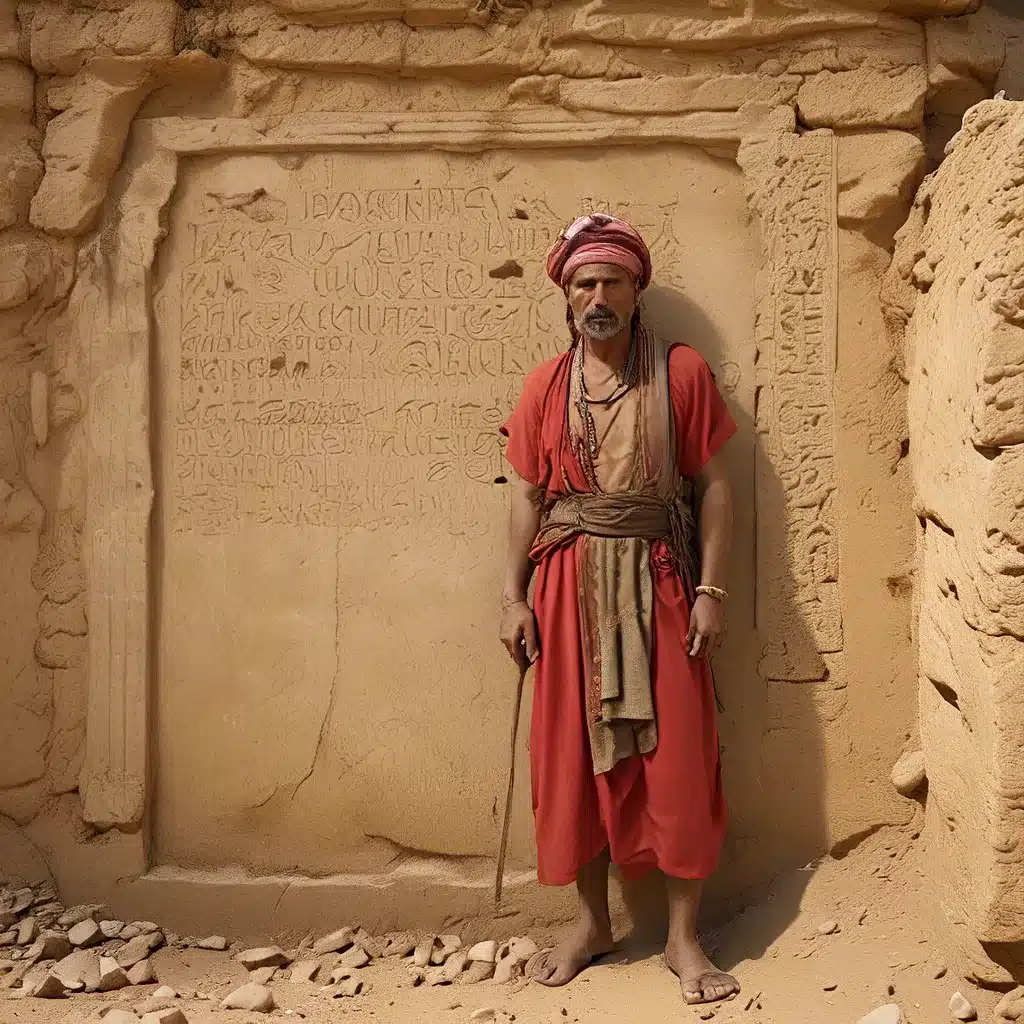
In the ever-evolving landscape of archaeological discovery, researchers and historians have uncovered a wealth of insights into the forgotten legacies of ancient civilizations. From the grandeur of the Nanzhao Empire in China to the mysterious decline of ancient Greece, these vanished empires have left behind a trove of artifacts and clues that continue to captivate scholars and the public alike.
Unveiling the Nanzhao Empire: A Forgotten Powerhouse
One of the most significant recent archaeological finds has been the unearthing of the Nanzhao Empire’s monumental Buddhist monastery in southwest China. This long-forgotten medieval kingdom, which once held sway over vast swaths of Southeast Asia, has finally begun to reveal its extraordinary history and cultural influence.
The discovery of this vast complex, consisting of at least 14 buildings, has provided an unprecedented glimpse into the Nanzhao Empire’s religious and political landscape. Archaeologists have uncovered 40 tons of roof tiles and thousands of other artifacts, including inscriptions that shed light on the empire’s rulers and their devotion to Buddhist practices.
According to the Independent, the newly discovered monastery was likely built in the mid-to-late 9th century, shortly after the empire’s peak. It served as a sacred last resting place for some of the Nanzhao rulers, as well as a repository for the relics of an important Buddhist saint.
The scale and importance of this monastery are further evidenced by the discovery of its own tile and brick kilns, as well as evidence of pottery and metalworking production. This suggests that the complex was not just a religious center but also a hub of craftsmanship and economic activity.
The Nanzhao Empire’s strategic location between the powerful empires of Tibet and China, coupled with its control over the trade routes to India, made it a formidable player in medieval East Asia. Its military prowess was equally impressive, with an army estimated to be around 100,000 strong, including an elite force of barefoot warriors.
Interestingly, the Nanzhao Empire’s unique blend of Buddhism also reveals the complex interplay between spiritual practices and military might. While the state promoted the virtues of compassion and peace, it also engaged in Tantric rituals intended to weaken its enemies and empower its own troops.
This discovery has provided a unprecedented window into the Nanzhao Empire, a long-forgotten yet historically significant medieval kingdom that played a crucial role in the power dynamics of East Asia. As Professor Megan Bryson of the University of Tennessee noted, this excavation has “produced more archaeological information about the Nanzhao Empire than we have ever had before.”
The Enigmatic Decline of Ancient Greece
While the Nanzhao Empire’s story has only recently come to light, the decline of ancient Greece has long been a subject of fascination and debate among historians and archaeologists. The once-mighty civilization that gave birth to democracy, philosophy, and groundbreaking advancements in art and science ultimately succumbed to a series of complex and interconnected factors.
According to a discussion on Reddit, the decline of ancient Greece can be attributed to a combination of political, economic, and environmental factors. The Peloponnesian War, which pitted Athens against Sparta, resulted in the weakening of Athens and the subsequent rise of Macedonian and Roman power.
Additionally, environmental factors, such as climate change and natural disasters, may have played a significant role in the decline. Droughts, famines, and epidemics took a toll on the population and disrupted agricultural production, leading to economic instability and social unrest.
The loss of political autonomy and the centralization of power under the Macedonian and Roman empires further eroded the influence and identity of the once-independent city-states of Greece. This transition from a decentralized, democratic system to a more authoritarian, imperial model had lasting consequences on the Greek way of life.
The cultural and intellectual legacy of ancient Greece, however, continues to captivate the modern world. Philosophy, art, and scientific advancements pioneered by the ancient Greeks have had a profound and enduring impact on Western civilization. Despite the empire’s decline, its contributions to human knowledge and understanding remain a testament to the resilience and ingenuity of the Greek people.
Unlocking the Secrets of Vanished Civilizations
The ongoing efforts to uncover the histories of forgotten empires like the Nanzhao and the intriguing decline of ancient Greece serve as a powerful reminder of the richness and complexity of our shared human past. These archaeological discoveries not only shed light on the past but also inform our understanding of the present and shape our vision for the future.
As we continue to delve into the mysteries of these vanished civilizations, we gain a deeper appreciation for the diversity of human experience and the resilience of the human spirit. The lessons gleaned from these ancient empires can inform our approach to contemporary global challenges, from the importance of cross-cultural exchange to the fragility of political and environmental systems.
The Lost Kingdoms website aims to be a hub for those interested in exploring the fascinating histories and untold stories of ancient civilizations. By diving into the latest archaeological discoveries and scholarly analyses, we hope to inspire a greater understanding and appreciation for the enduring legacies of the past, and their profound impact on our present and future.


